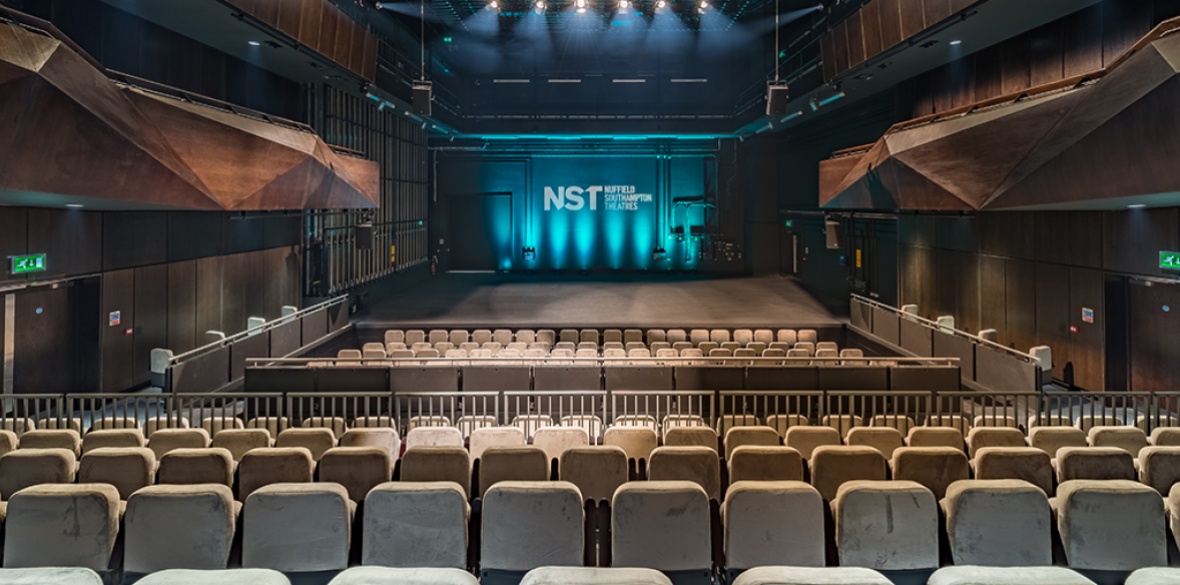This is the last article you can read this month
You can read more article this month
You can read more articles this month
Sorry your limit is up for this month
Reset on:
Please help support the Morning Star by subscribing here
LAST week the Prime Minister announced details of how sections of the leisure and hospitality industries will be able to reopen from this weekend.
While pubs, cinemas and museums will resume trading — albeit under strict social-distancing rules — no date was given for when theatres would be able to welcome audiences back into their buildings.
This disappointment was compounded later in the week by Culture Secretary Oliver Dowden’s announcement of a road map for reopening Britain’s performing arts venues, a plan that Theatres Trust sees as woefully lacking in meaningful detail at a time when the theatre sector desperately needs clarity and support.
Theatres have been hit particularly hard by the coronavirus crisis. Over the past decade, they have had to become increasingly commercial, with even publicly funded venues less reliant on subsidy and more on ticket sales and additional income from food and drink.
This revenue disappeared overnight in March when theatres closed. Years of operating on lean budgets has left most with only limited reserves and though the government’s furlough scheme has been a lifeline in helping to reduce outgoings while protecting jobs, theatre buildings even when empty have ongoing maintenance and operating costs and soon the furlough support will be withdrawn.
Reserves are now running dry — 70 per cent of theatres estimate that they will run out of money by the end of the year. Four theatres have already gone into administration, including Southampton Nuffield Theatres and Leicester Haymarket, and many more have started redundancy consultations including Lyceum Theatre in Edinburgh, Birmingham Hippodrome, Theatre Royal Plymouth and the National Theatre.
The government's roadmap is a step in the right direction but it is such a small one at a time when we need bold, decisive action. The five stages in the plan follow a logical progression, starting with rehearsals and recording performances for broadcast, before moving on to outdoor performances and eventually indoor productions in stages 4 and 5, gradually increasing audience sizes.
But one crucial detail that is missing is “when.” Theatres cannot just throw open their doors to audiences with a day or two’s notice. Shows need to be rehearsed, tours booked and buildings prepared for reopening.
This takes planning — a minimum of two months based on conversations we’ve been having — so,at the very least, we need timescales for each stage of the roadmap and the earliest dates by which we might be allowed to reopen our auditoriums.
Panto season is huge for many town’s theatres, generating the income to keep the theatre going the rest of the year. The summer months are the crucial planning period for these shows but there is still too much uncertainty for many theatres.
While we all want theatres to reopen, we want to do so safely. I sit on the Entertainment and Events Working Group which is looking at how to minimise risk of infection to audiences, performers and staff.
It is evident that for the foreseeable future, some social distancing will need to be in place and this poses another issue for theatres. Even one-metre distancing will reduce most theatres to 30-40 per cent capacity at best when, on average, theatres need to sell 70 per cent of seats to be viable.
Theatres will not be able to go back to business as usual. So, as well as dates, we need to know that the government will provide financial support to the sector to see us through this storm. Extending the furlough scheme would be an essential first step.
Investing in theatres and our cultural infrastructure as part of the “New Deal” to restart the economy would also provide an important boost to local communities and help revitalise our failing high streets.
This is not begging for a handout but investment in an industry that generates millions of pounds, employs thousands of people and brings real benefits to communities. Theatre is not a pastime for the elite. It is enjoyed by millions each year, with attendance figures of upwards of 34 million annually.
The phrase has been somewhat overused recently but theatre is one area where it is true to say that Britain is world-beating, both in its productions and the buildings where they take place. Theatres are more than just places of entertainment, they are places where communities come together, learn and are inspired.
Theatre buildings are community hubs that can help revive town centres and can play an active role in the country’s recovery. This is just as worthy of a government rescue package as banking or airlines.
Theatres Trust is doing what we can in our remit to protect theatres, providing free advice to theatre operators and offering small grants to theatres to make adaptations to meet any new health and safety requirements.
Colleagues across the theatre world are thinking creatively to rise to the new challenges and the public has been very generous with donations to their favourite theatres.
But this won’t be enough. Without urgent government support, there will be mass redundancies, more theatre operators will join the four that have already gone into administration and, ultimately, large numbers of the country’s unrivalled network of theatre buildings in towns and cities across the country may be sold off to developers and lost forever.
For more information on TheatresTrust, visit theatrestrust.org.uk











